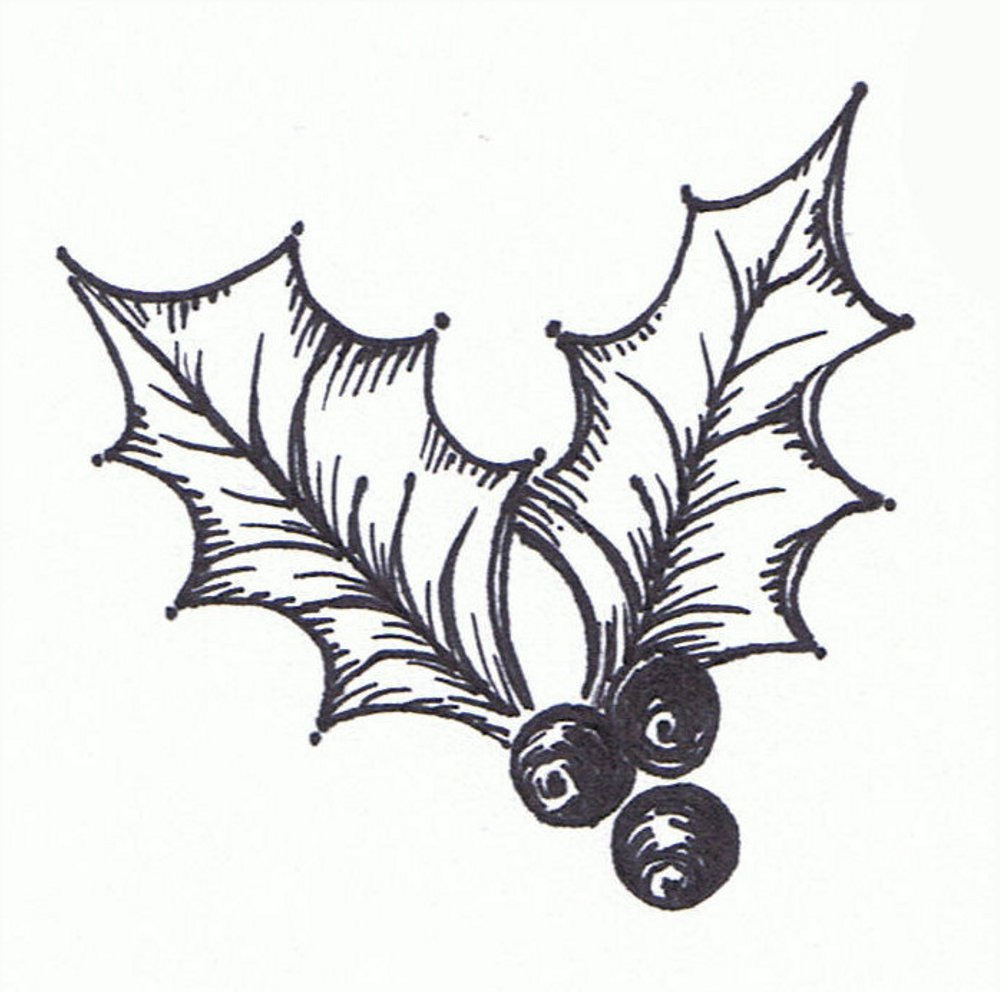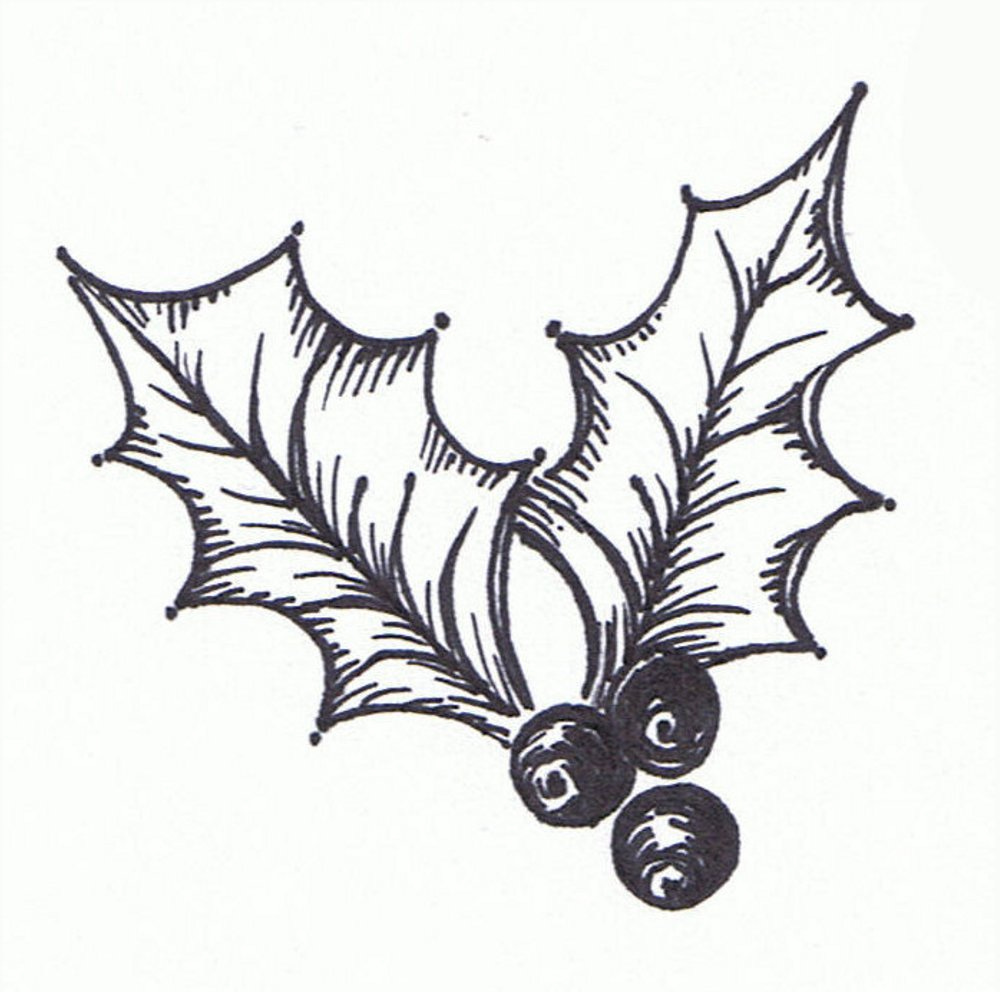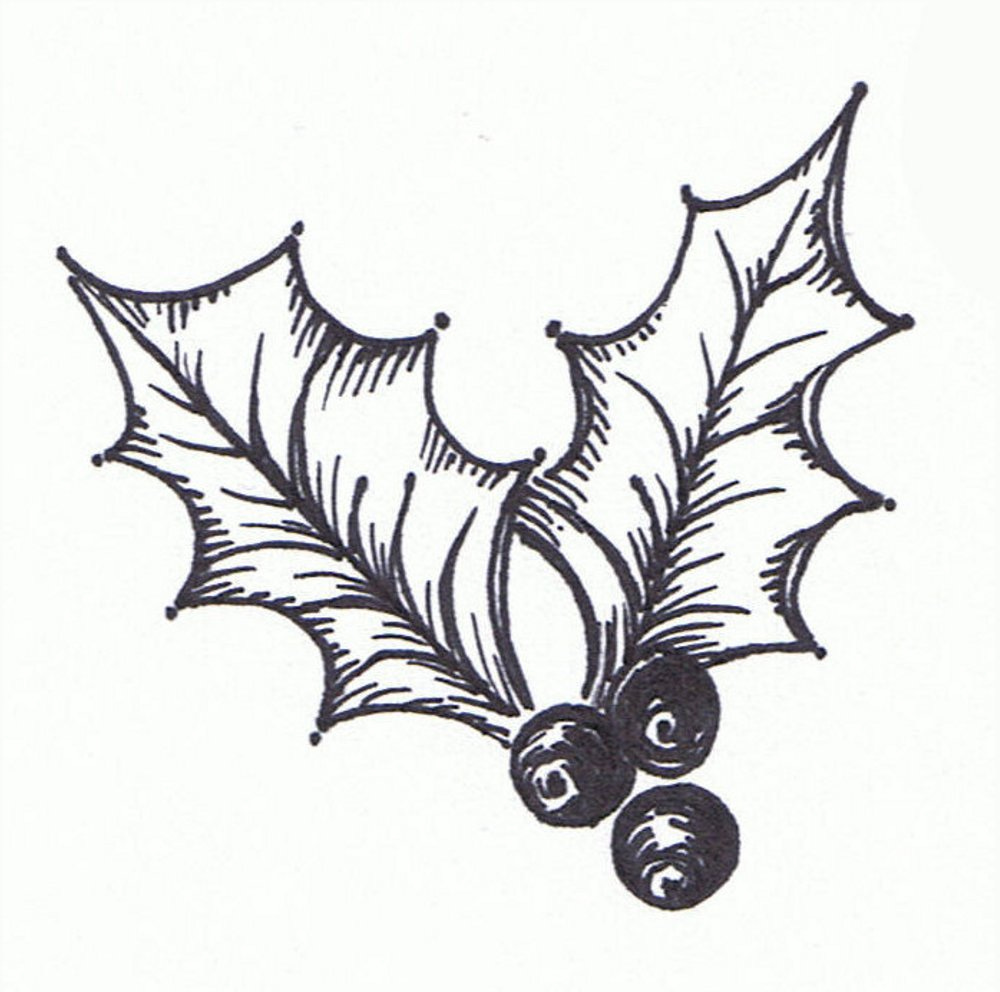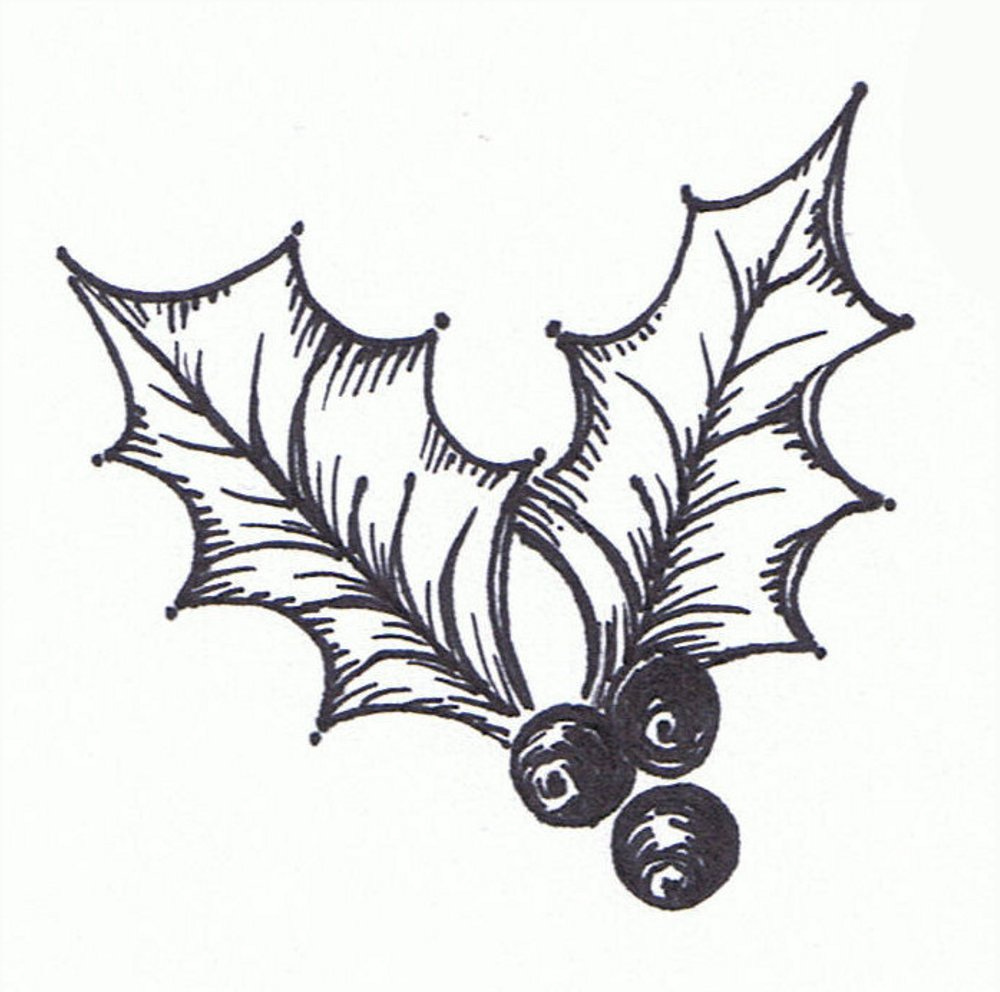Twelve Days of Christmas—Dark Tidings is a Substack special holiday event. Each day beginning Friday the 13th, we’ll count down to Christmas Eve with a dark tale featuring one of the gifts from the classic Christmas carol. A guide to all the stories can be found here.
The Mullins family was dying.
With his body covered in festering sores, Josiah knew he was on his deathbed. The pox had colonized every inch of his skin; he even felt them inside his mouth. His fever was a bucking horse that kicked up in a rage before dying unpredictably, leaving him wracked with shivers and soaked in perspiration.
Someone had opened his window but he couldn’t remember who. An act of benevolence to allow the pine-scented air to drift across his bed, even though the wind that blew in was stiff with cold. Outside, the snow fell in thick curtains against the black sky.
It had been only a day since the five Mullinses gathered around a perfect dark evergreen, brought in by the stable boys for Christmas celebrations. Josiah remembered his daughter tying ribbons on the boughs, how her hands took on the cold astringent scent of the tree. His eldest son had stood on a chair to light the candles, delirious with the responsibility of fire, while his wife sat next to him, stringing gilded walnuts on a red wire. His younger son had cried after putting a fistful of cloves in his mouth, and his baby breath had smelled of gingerbread.
His heart chilled as the memory seemed to drift away from him. His fevered mind went in and out of consciousness so often, he remembered only the light or dark streaming in through his window, wholly oblivious to calendar days. Surely Christmas was not a day ago; it could have been a week or more.
The grand evergreen might be alone in the parlor now, a dried husk surrounded by a skirt of brown needles, stark reminders that death had visited this house.
He might be the last living soul in his family, awaiting the reaper alone, his home but an isolated black dot on a hill fifty miles from the nearest neighbor.
Josiah moaned, somewhere between a scream and a cry. He wanted to call out for his wife, but so close to death he couldn’t remember her name. His wretched mouth couldn’t form the words anyway. So he moaned like a ghost, and maybe he was.
Elizabeth paced her daughter’s room, holding her ears against her husband’s dying cries. There was nothing she could do for him.
Her two sons were long dead. Before dismissing the stable boys, she had paid them handsomely to carry the two bodies outside and bury them in snow. Frozen, their corpses would await the spring thaw for a proper burial. She pictured them tucked under snowy blankets, blue faces hard as glass.
Her daughter Anna’s tiny body was red with fever but she had no sores. Elizabeth mopped her face with a cloth and mouthed every prayer she could remember, but she doubted God would hear them.
She had sent for help to save her daughter, a desperate attempt that she regretted almost immediately. But she had lost so much already. She knew Anna’s death would be her own.
Now she prayed for Josiah to die, to spare him what was to come. She prayed he might die before the milkmaids arrived.
The snow outside was falling fast as rain, rolling and drifting into mounds that would make the farmhouse difficult to reach. Maybe they wouldn’t make it. Maybe her desperate letter would go unanswered.
Then, there was a knock at the door.
The huge brass knocker boomed against the heavy wood, echoing throughout the house.
Elizabeth’s bones turned to ice. She slunk to the stairs, huddling in the shadows. They were here, there was no turning back now.
“Elizabeth!” She heard a silvery, ethereal voice ringing through the house. It raised a shiver on her arms.
“Elizabeth, the girl doesn’t have to die.”
She hoped her husband was already dead, that he didn’t hear them and wouldn’t spend his last moments agonizing over his fiendish wife.
The knocker sounded again, shaking the house. Elizabeth took the stairs on wobbly legs, gripping the banister. She made her way to the threshold, her teeth chattering.
With her hand on the wood grain, she spoke through the heavy door. Frozen air streamed through a crack in the jamb, and Elizabeth’s shoulders shook.
“Please. You must be quiet. My husband doesn’t know about me,” she begged them.
From the other side of the door, she heard murmuring.
“Your husband will know nothing. Your secret is safe.”
“I don’t want to go to Hell,” Elizabeth whispered.
She could hear the smile on the woman’s words.
“You won’t. Milkmaids never die.”
The knocking awoke Josiah, and he felt as if he was floating to the surface of an icy lake. He opened his mouth to call for his wife. What was her name again?
He thought he heard another woman’s voice in the house, clear and high as a singer in the choir. But that couldn’t be real, could it?
The booming of the knocker rattled his bones. He tried to open his eyes, but the sores on his eyelids made it difficult. Through tiny slits, he looked around his room. It was dark, the candles extinguished. He gave up and let his eyelids close, straining to hear that silvery voice.
When he opened his eyes again, he saw a group of women standing around his bed, a hallucination so beautiful he nearly smiled. His fevered brain was at last bringing him peace.
The women wore white furred cloaks with hoods covering their faces. They were so real, he could hear their skirts rustling. He could even smell their sweet skin— a creamy, grassy perfume that reminded him of his wife in her younger days.
His wife! She was there, too. Elizabeth. He grunted, trying to say it out loud, so proud he was to have remembered her name, but the sores in his mouth and throat would not let him speak. He lifted a finger from the bedspread, hoping against hope she would see it.
The women began to sing. It was neither hymn nor Christmas carol, but eerie, disconnected notes that fell on him like flakes of snow. The high notes rang like bells, and the low notes sounded familiar, bucolic, like cows on a hillside.
Surely this was a fever dream, but it was the loveliest thing he had experienced since the Christmas tree. He softened under the sound, the smell, the vision of women in white, tending to him as he died.
As he listened, he felt the faintest pain in his wrist, barely a pinch above the raging fires on his body. It seemed his fever broke all at once. He felt cold and light, like his head had become buoyant. He sighed out a long breath, at peace for the first time since becoming ill.
“We cannot save him, but we can save your daughter.”
The woman pulled back her hood, revealing white hair clipped close to her skull. She had stony grey eyes rimmed in platinum eyelashes, set in a pallid, angular face. Her lips were the color of frost, except for the spray of Josiah’s blood that sparkled across them. She spit red on the floor, dropping his opened wrist to let him bleed out.
The other women hummed an ethereal sound that danced around the room, making Elizabeth dizzy. Snowy lips peeked out from beneath their hoods.
The leader held up her hand, her pale palm facing Elizabeth. It bore the round crater she knew from her own palm, the unmistakable scar of cowpox.
“Elizabeth,” the leader demanded, her white teeth streaked with blood. “You concealed your past, but you’re one of us. Now, prove it to your sisters and we shall welcome you into the herd.”
Elizabeth knew cowpox marked all milkmaids this way, afflicting their hands but ultimately sparing them from the far worse malady of smallpox. For ten years she had kept her past hidden, diligently burying her childhood spent in the milking parlors of a wealthy family.
She remembered being sick, lying sweaty in the hay. She remembered the other milkmaids patting her on the head and smiling. Elizabeth had passed through the rite of the milkmaid. Now you will live.
Now she held up her hand, showing her scar to the light for the first time in her adult life.
“Elizabeth, your past with the cows is not your shame. The cows made you invulnerable. Eternity is your birthright.”
For generations, learned men had mulled over the milkmaids’ resistance to smallpox, even as it burned through families and entire towns. They viewed it as a curiosity, a mystery of science. The maids paid little attention. They knew it as magic— a cloak that allowed them to drift among the sick, and occasionally to bring someone back from the edge of death.
The other women were at Elizabeth’s elbows now, showing their scars. They wrapped their arms around her and pushed her forward.
“Eternity is the milkmaid’s right,” one whispered in her ear, raising the hairs on her neck.
“The cows protect us,” said another.
“The cows give us life,” said a third, and they all joined in, their voices layering in a vibrational cacophony that began to sound like a herd. Elizabeth’s head rang with it, and waves of warmth rolled through her body. She was transported to the barn of her youth, the sunshine smell of hay, the earthy sweetness of the cows and the muck, the bright stench of calving.
“The cows,” Elizabeth mouthed, and she was herself again. Her empty hands felt the cows’ soft hides, their silky udders, the warm splash of fresh cream. When she closed her eyes, the cows stared back at her, their calm black eyes both infinite and unknowable.
“Vitam dant nobis vaccae,” said the leader, and they all joined in the chant, even Elizabeth, as she stepped forward. “Vitam dant nobis vaccae.”
From the barn hundreds of yards away, Elizabeth could hear the deep rumble of Josiah’s herd lowing, the cows picking up the song as if they had been summoned. She felt them in her bones.
Her husband’s wrist dripped red blood on the wooden floor. She brought it to her lips, tasting the salt and iron of his last living moments and silently thanking him. As she squeezed the blood from his arm, she thanked him for his house, their children, and the ten years he had pretended to believe she was a lady.
She was never a lady, only a milkmaid, and she was back where she belonged.
The leader nodded, the hint of a smile in her eyes. Elizabeth had proven herself.
With Josiah dead, the milkmaids slipped into Anna’s room, placing their scarred palms on the girl’s limbs and face, and painting her skin with her father’s transmuted blood. Buckets of milk were brought in and set around the bed.
Throughout the night, they performed their blood ritual, singing their haunted song. Tears streamed down Elizabeth’s face— she could no longer pray to God for Anna’s salvation. Their lives belonged to the herd now.
Then, in the grey hours of the morning, she noticed a sour smell filling the air.
“It is done,” said the leader. She gestured to the buckets, their contents now curdled with disease. Within minutes, Anna opened her eyes, the irises an icy blue. Her fever broke and she breathed out a puff of white vapor. Elizabeth sobbed. Her daughter would live.
A fresh bucket of milk was brought forth, and together, the maids dipped their hands and washed themselves clean of their work, the milk turning a wretched pink. Elizabeth’s hair fell over her shoulder when she leaned toward the bucket. The lock was pure white, where hours ago her hair had been chestnut brown.
Anna, already well enough to stand, joined her mother. Her blond hair was whitening before Elizabeth’s eyes. The color in her lips was gone, though her face was still streaked with dried blood. Elizabeth cupped the milk in her hands and washed her reborn daughter clean.
Later, when the sun rose onto a cold magenta day, Elizabeth and Anna turned to look at their house, a tiny dot on a snowy hill, one final time.
They would join this band of pale maidens to roam the countryside, following the sickness, milking life from death.
Their scars held out as talismans, their gift of eternity was as sweet as cream.
Don’t miss Seven Swans-a-Swimming by the incomparable
. And read the previous Dark Tidings post, Nine Ladies Dancing by , here.Images by
.Special thanks to
and for helping me with Latin!










I love how the milkmaids were harbingers of life and not death, even if their ministrations were a little gruesome. A very clever weaving together of early science and horror. 👏🏻👏🏻👏🏻
You really know how to rise to a challenge! Now I need to look up the history of Milkmaids. Did they really get sick less? haha